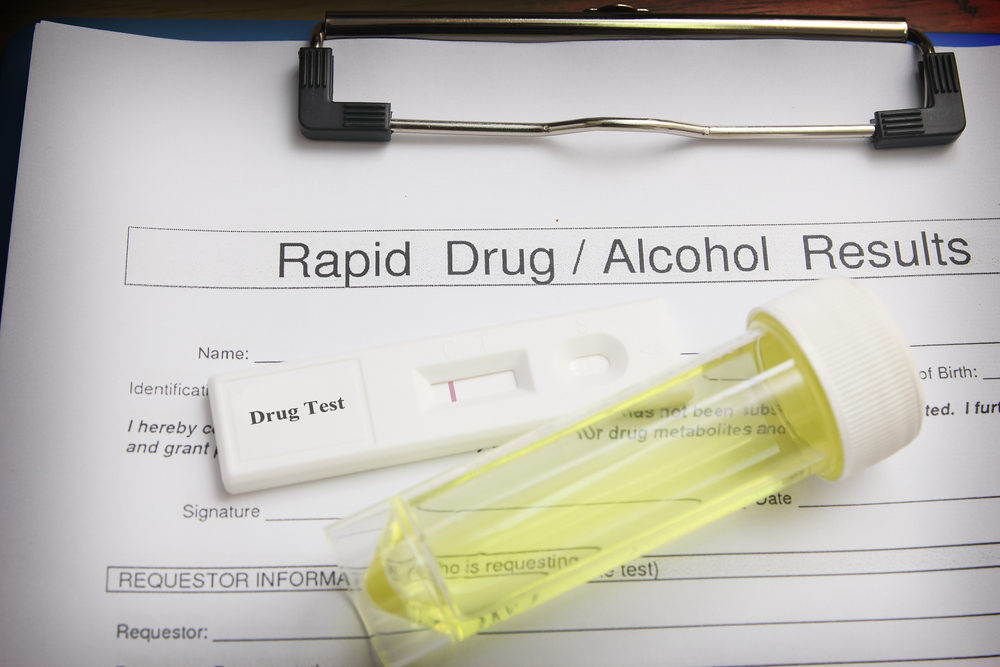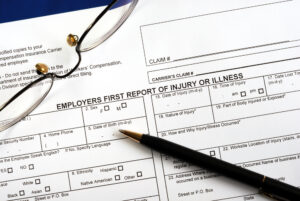
The world of workers’ compensation is tricky enough to navigate when you suffer an injury on the job, and complications only increase when you bring drug testing into the mix. Florida is a “no-fault” state, meaning even if the accident that injured you was your fault, you are still entitled to seek workers’ comp benefits. But, does the no-fault rule still apply if you either refuse to take a drug test or if it comes back positive? Are you required to take a drug test if you seek workers’ comp in Florida?
In any Florida workers’ compensation claim, you must immediately inform your employer of your injury, and they must report it to their insurer within seven days. Many workplaces in Florida are drug-free, meaning they have a zero-tolerance policy for drug usage by all employees. All federal and public employers who are funded by an active government grant must have that policy. While being a drug-free workplace is optional for any private employer, many employers opt for drug testing. They receive a discount on workers’ comp insurance, usually about five percent.
Florida Drug Testing for Workers’ Compensation
Any drug-free Florida workplace is required to test you for drugs when you intend to seek workers’ comp benefits, and even employers who don’t have the policy are permitted to test you. Your workers’ comp claim will most likely be denied if you are found to have drugs, alcohol or other non-prescription stimulants in your system after the injury. The burden of proof on the claimant here is tough. After an accident, a positive drug test inherently implies that those drugs caused the injury, so the employee must prove otherwise.
In drug-free workplaces, there must be no reasonable hypothesis that the substance contributed to the injury. In workplaces without the drug-free designation, the employee must have clear, convincing evidence that the substance did not contribute. If you refuse to test at all, the implication automatically becomes that the substance did contribute. Not only will your claim be denied, but your employer has every right to fire you. Some positive drug tests can even turn into criminal charges if the presence of drugs is proven, especially in a sensitive “mandatory-testing position” such as police officers, daycare workers or ship captains.
You do have the right to contest a positive test result with a medical review officer before the results are officially listed as positive. While in most cases, employers are legally permitted to fire you for conclusively working while under the influence, if you agree to enter a certain treatment program, they must give you that chance unless you have tested positive in a prior incident. They must also wait to fire or discipline you until a second positive test has been performed and the results reviewed by the medical review officer.
Employers do have an obligation to inform employees of their drug testing policies at the time of hire. Some things an employer must discuss with new employees include:
- Types of testing (e.g., at application only or randomly throughout employment)
- What drugs will be screened for
- What happens if you fail a test or refuse to take one
- Opportunity to disclose all current prescription medications you are on in case that alters the test results.
It is hard to think about drug testing these days without also thinking of marijuana, a substance that is now available recreationally in many places. Medical marijuana is legal in 36 states, including Florida. However, because it is still illegal by federal law, you run the same risks as any other drug during a workers’ comp process, even if you hold a valid medical marijuana card. Your claim can be denied, and your employer can terminate you. Some Florida lawmakers have attempted to pass legislation making certain exceptions for medical marijuana, but none have been successful.
Unfortunately, completing a successful workers’ compensation claim is difficult under very normal injury and accident circumstances. Adding drugs or alcohol to the equation makes the road much harder. A competent legal team, particularly one who has kept up with the ever-changing laws, can make all the difference in your case. The attorneys at Scott R. Marshall have been working with workers’ comp claimants for almost 25 years. We serve Floridians statewide. Give us a call for a free consultation at 727-772-5900, or contact us anytime to get started.

At the Scott R. Marshall law firm, we represent people around Florida in claims arising out of workers’ compensation, personal injury and wrongful death. Our firm believes the best way to represent clients is to take the time to get to know them. We deal directly with our clients on all legal issues and provide professional, personal and aggressive representation.














Comments for this article are closed.